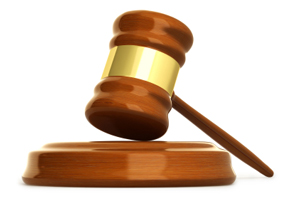
A Texas judge this week ruled to let medical device makers Johnson & Johnson (NYSE:JNJ) and Boston Scientific (NYSE:BSX) off the hook but backed the case against healthcare giant Abbott (NYSE:ABT) in a lawsuit accusing the companies of engaging in illegal marketing of their stents.
The whistleblower lawsuit, originally filed in 2006 by Kevin Colquitt, claimed that all 3 companies "conducted the off-label, unlawful marketing of biliary stents for many years," according to court documents.
The lawsuit further accused the defendant companies "and others in the market" of pursuing a common "scheme" to illegally market their biliary stents for peripheral treatments.
"They followed a relatively easy FDA pathway and received approval to market these stents for ‘biliary’ use," according to the complaint. "Yet, they have almost entirely ignored this approved use in their marketing; instead, marketing stents to the manifestly larger (99% of sales) ‘peripheral’ market."
The lawsuit claimed that device makers don’t pursue peripheral labeling for their devices because it’s more costly and time consuming, as well as more uncertain than aiming for a biliary indication.
The complaint further claimed that 99% of the stents physicians use to treat lesions in the peripheral vascular are only indicated for use in biliary structures, and that "many of the stents with a [malignant biliary stricture] indication are manufactured in configuration of diameter and length that would make it impossible for them to be placed in any human biliary duct."
The accusations seemed to surpass the realm of False Claims Act violations and take an almost conspiratorial tone, with Colquitt claiming that the medical device industry "banks heavily" on the "objective fact that [the] vast majority of biliary stents are being marketed and used in an off-label fashion."
The lawsuit estimated that Guidant (a one-time Abbott subsidiary later acquired by Boston Scientific for more than $26 billion), Johnson & Johnson subsidiary Cordis (which exited the stent market entirely in 2011) and Boston Scientific collectively represent $1.4 billion in peripheral/biliary stent sales from 2003 through 2005. The lawsuit further estimates that $900 million of that paid for stents used for non-approved treatments, and that Medicare and Medicaid paid for 80% of those procedures.
U.S. District Judge Barbara Lynn ruled this week to dismiss the lawsuits against Boston Scientific and Johnson & Johnson and its Cordis subsidiary, with prejudice, but allowed the case against Abbott to proceed.

